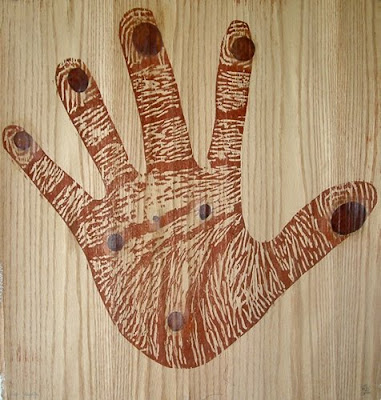 I got a notice from the bank today telling me about changes in EU law that would affect the manner in which the account would work. Or something. I didn’t read the letter to the end because I haven’t used this account for well over a decade, no money either in or out, but it’s brought back memories.
I got a notice from the bank today telling me about changes in EU law that would affect the manner in which the account would work. Or something. I didn’t read the letter to the end because I haven’t used this account for well over a decade, no money either in or out, but it’s brought back memories.The account was for “Working Homes In The Forest” a project I set up bringing together the National Trust and a small group of people who wanted to live and work on their land. NT are well known for their innovative work but offering a place to live on their exquisite Stackpole property was taking a risk as well as being generous.
5 or so people made their way down to the National Park and set up home. They brought with them some hazel and willow poles, some tarps and some equipment borrowed from the larger Pagan camps from which they had evolved, and cut some more poles from the plentiful and graceful woodland there. A communal bender was to be a manifestation of the philosophy of the group, built as a place to eat and meet together, to sleep in if their own space experienced problems, to offer shelter, warmth and comfort to visitors, to act as a focus of the site. Quality shelter, quality food needs to be available for without this underpinning of generosity things fall apart.
Some weeks into the project I was asked by the Trust to visit and was excited at the prospect of seeing how people were at living permanently on and with the land. I brought a little food and goodies to share and a sleeping bag, and very quickly experienced the problems. There was indeed a communal bender but it was filled with rubbish, damp bedding and dankness; the burner that had been bought for this communal space from the generosity of people who supported the project, had miraculously found its way into a private space; there was no food, no extra bedding. So I spent a miserable cold night in a minute tent and watched the person who’d appropriated the communal burner also appropriate a wheelbarrow full of wood that had been cut by someone else. The most pleasurable and innocent part of my visit was attempting to gain wisdom from 10 wrens feeding together at dawn.
The Trust and all but one person on the project had problems with the way things were working out. Living outdoors is very tough and the space the Trust had offered was too wet. But the real issue was that there was no focus, no coordination, and the person who had the most practical skills was also the person who (and lets not mess about with euphemisms here) stole from others at the same time as badmouthing them to the Trust. This person also presented himself as a very experienced spiritual man, a reiki master, a seer of visions, a Man of the Woods TM, the natural leader. He wasn't confronted because there was an overwhelming need in every individual to be seen to be lovely. Actually, they just needed to get to grips with reality.
Now I recognise part of the problem, it’s something that has caused a great many other problems and not just in a Pagan context: a sense of entitlement. We are all entitled to become anything we wanna be, it’s our right to do what we wanna do. We don’t have to be genuinely grateful for anything because we manifested this all for ourselves, right?
Another part of the problem was that I trusted too easily and had really bought into the concept of egalitarianism, of individuals rising to meet problems when we're given the freedom and opportunity. Fundamentally, I still believe that we are all as important as each other, that the genuine sharing of power is vital to healthy relationship. And at the same time, for whatever many complex reasons, people just don’t work like that.
The group continued to work together with NT who moved them to a more suitable area. Working and friendly relationships were built with local families and businesses and a child was born which signalled the end of the project. Sam, who had created all these relationships and worked so hard, now had to care for herself and her child.
After my visit to Stackpole I lost interest in it. There was too much unspoken resentment and overt power-playing, too much bad faith, so little generosity, so much focus on the individual rather than the group or the project that it was just too much to take on and there was no corporate desire to deal with it. I realised that apart from Sam everyone else there just wanted to feather their own individual nests. It broke my heart a little, and I felt no little personal shame in demonstrating to a non-Pagan organisation that had trusted us that sustainable partnership was something we couldn’t manage. Rather than attempt to create more partnerships with the Trust and other landowners and risk further heartbreak I shelved the project altogether.
Getting the letter from the bank today has made me reflect on how much was possible and how little was manifested. But I’ll keep the proof that such a project did once actually exist and hope that the stirrings of desire for maturity within Paganism may evoke one that works better.

